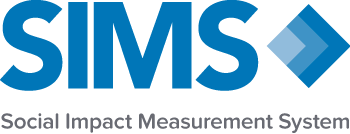DTNI

The SIMS will provide DTNI with a resource allowing the organisation to work with public bodies that are disposing of surplus assets. It allows for disposing bodies to specify and measure against the intended outcomes of the disposal where they are engaged in community asset transfer.
DTNI recognises that public bodies delivering services and investing for social and economic change, are keen to understand/measure the outcome of their endeavours-this is including the consideration of the future use of surplus assets and/or the better management of those assets. SIMS provides those public bodies with a means for assessment of impact against projected outcomes.
The proposed tool from DTNI has been specifically designed for those organisations seeking the transfer of public assets to better understand and, importantly, demonstrate their social value. It has been developed based on the SROI methodology. As such, the tool will identify the investment proposed and the activities delivered but focus on the outcomes as a result of these activities.
For DTNI, the development of an outcomes framework is grounded in supporting a move towards standardising impact measurement. The DTNI SIMS diagnostic tool takes the 7 principles of Social Value and SROI (as developed by Social Value International in conjunction with the Cabinet Office) as its starting point. These principles are widely applicable to assessing the standard of any type of evaluation or impact report. They exist to inform good practice in impact reporting.
Principles:
- Involve stakeholders
- Understand what changes
- Value the things that matter
- Only include what is material
- Do not over claim
- Be transparent
- Verify the result
Our interpretation of these principles and application in relation to the SIMS is to:
- Create a standard that provides a reference against which to assess outcomes claims made in impact reports
- Encourage the development of outcomes claims (and valuations) based on evidence rather than speculation in impact reporting
- Move impact reporting beyond counting outputs
- Increase robustness and validity of the depth of impact reporting to improve practice in defining, measuring and valuing the outcomes claimed for a given intervention.
- Provide a standard for Asset Transferring bodies and groups alike
